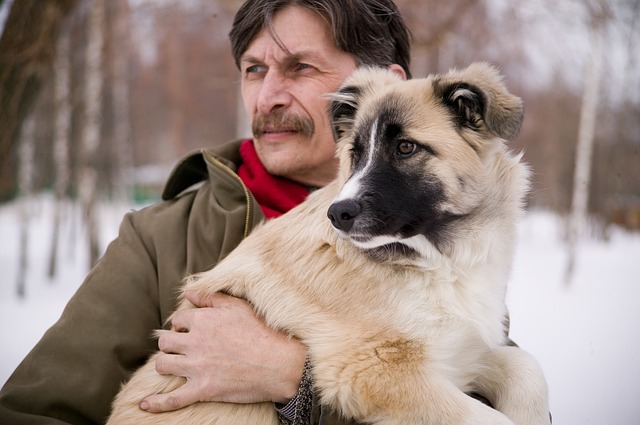Dogs can’t help but be friendly – it’s in their nature, scientists say. Since they evolved from wolves tens of thousands of years ago, certain genes that make dogs particularly sociable have been selected by evolution.
This may be why dogs have distinctive personalities that make them like and look for human company, the BBC reports. Bridgett vonHoldt of Princeton University said, “Our finding of genetic variation in both dogs and wolves provides a possible insight into animal personality, and may even suggest similar genes may have roles in other domestic species (maybe cats even).”
Researchers studied the behavior of domestic dogs, compared to grey wolves living in captivity. They conducted a variety of tests to check on the animals’ problem-solving skills and overall friendliness.
While the wolves turned out to be as good as the dogs in solving problems, the dogs were much more gregarious. They spent more time playing with human strangers and looking at them, while the wolves remained aloof.
DNA tests found that there is an association between some specific genetic changes and behaviors like attention to strangers or following social cues. The same changes in humans are linked to a rare genetic syndrome that makes people highly sociable.
Dogs evolved from wolves between 20,000 to 40,000 years ago, beginning when wolves which were tolerant of people entered hunter camps to eat food scraps. They were eventually tamed over time, and became the dogs they are known as today, in different breeds.
These genetic changes linked to friendliness in dogs shows how their behavior might have evolved from that of wild wolves, which are known to keep to themselves and rarely interact with people at will.
VonHoldt said, “This could easily play into the story then of how these wolves leave descendants that are also ‘friendlier’ than others, setting the path for domestication.”
The study was published in the journal Science Advances.
























